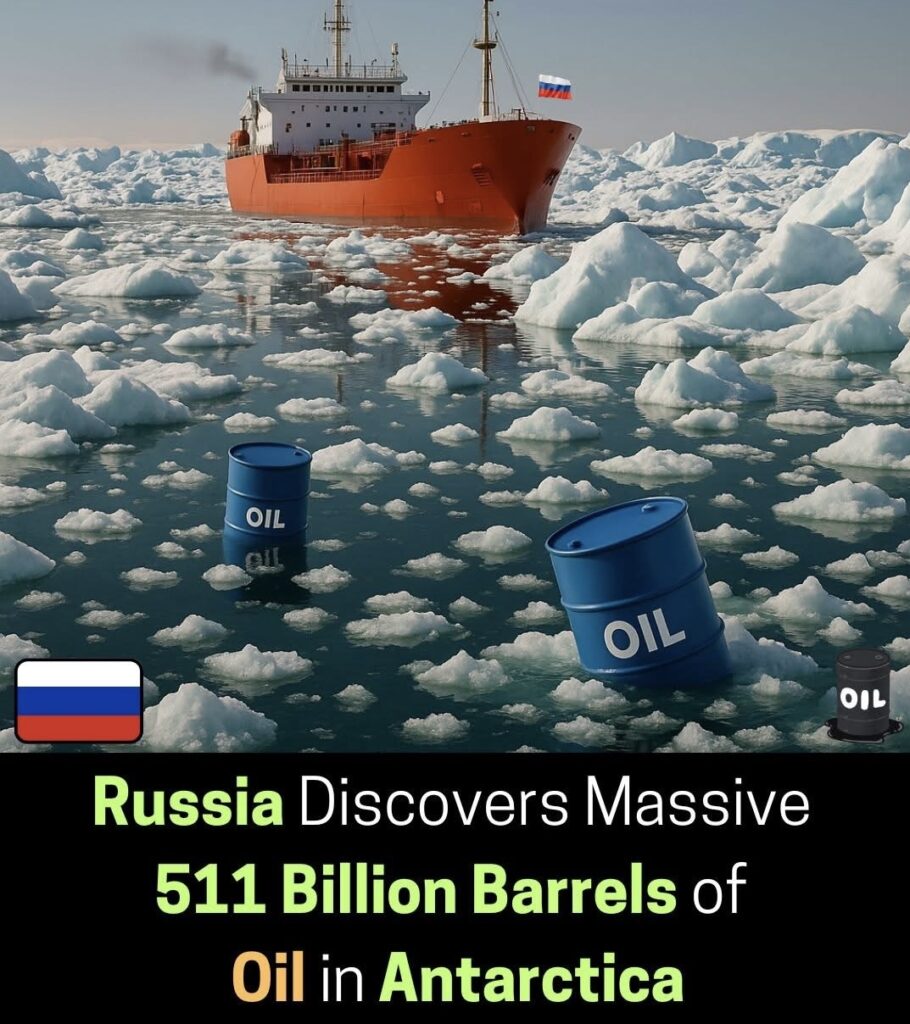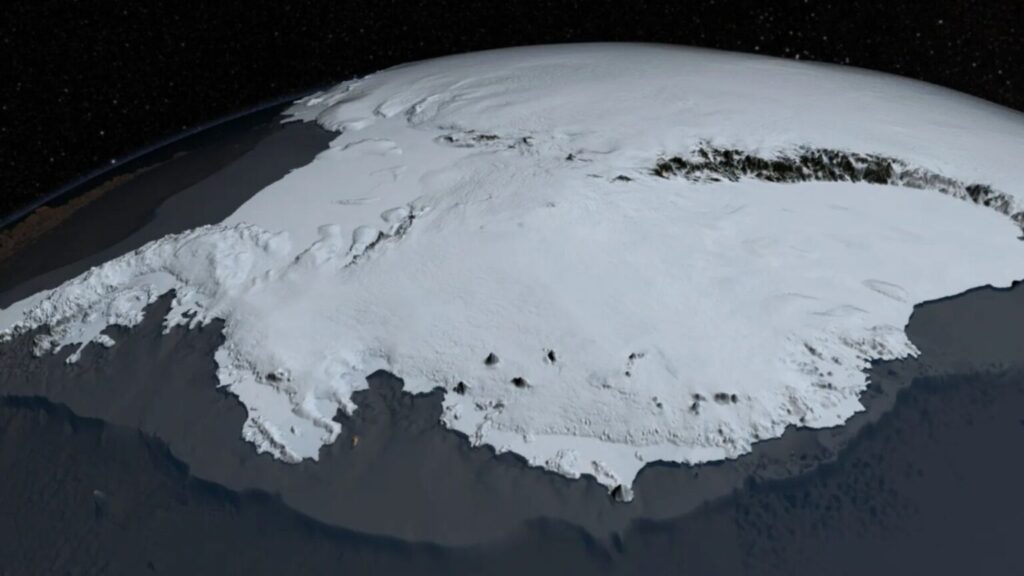A new global battleground may have just emerged — one not in the Middle East, Eastern Europe, or the South China Sea — but beneath the ancient, frozen plains of Antarctica.
According to reports published by Newsweek and based on leaked Russian scientific documents, researchers from Moscow have allegedly identified over 511 billion barrels of oil beneath the Antarctic ice shelf. To put this in context: this single reserve is ten times larger than all the oil extracted from the North Sea over the past five decades.
This revelation, if confirmed, is nothing short of seismic — not just geologically, but geopolitically. It promises to redraw energy maps, rewrite power balances, and reignite fierce debate over the limits of international law in one of the world’s last so-called untouched territories.

The Antarctic Treaty: Protection or Illusion?
Antarctica is often romanticized as the last pure frontier — a continent without war, exploitation, or sovereignty claims. Under the 1959 Antarctic Treaty, the continent is designated for peaceful scientific collaboration, banning military activity and commercial resource extraction. But that treaty is starting to look more like a temporary truce than a permanent solution.
The oil discovery exposes a fatal weakness in the Antarctic legal framework: the lack of enforcement, clarity, and foresight. While the treaty prohibits drilling, it does not permanently prevent nations from conducting seismic research, mapping resources, or preparing for future exploitation when political conditions shift. Russia — and possibly China — are simply playing the long game.
And make no mistake — they are not alone. The United Kingdom, Australia, Norway, Chile, Argentina, and France all maintain overlapping territorial claims in Antarctica. Most of these are suspended under the treaty framework, but they are far from abandoned. In a post-discovery world, they may become flashpoints.
511 Billion Barrels: Energy Game-Changer
Let’s not underestimate what 511 billion barrels of oil would mean in hard terms:
- It would instantly position Antarctica as one of the richest oil regions on Earth, second only to Venezuela by proven reserves.
- It could reshape global oil markets, disrupt OPEC control, and dilute Gulf States’ leverage.
- It could give Russia immense new energy leverage, especially as its Arctic and Siberian fields age and face Western sanctions.
At a time when energy is weaponized — seen in both the Russia-Ukraine war and the ongoing global energy crisis — this discovery gives Russia a massive strategic card.
And with Europe scrambling to “green” itself while depleting traditional sources, a sudden rush for Antarctic oil — under the guise of energy security — could flip the environmentalist narrative on its head.

The Inevitable Geopolitical Fallout
What happens when idealistic treaties meet resource reality?
This discovery, while technically not yet confirmed by independent international agencies, has already shifted perceptions in the corridors of power. Behind closed doors, nations are undoubtedly asking:
- Who controls the logistics, research bases, and entry points in Antarctica?
- How can we enforce or rewrite international law if major powers defy it?
- Is the age of “scientific neutrality” in Antarctica over?
The fear among analysts is not just about oil — it’s about precedent. If Russia begins resource extraction — directly or via state-linked proxies — the treaty will fracture, and a new Cold War-style race will begin. The continent will be militarised under the guise of “research security,” and frozen diplomacy will give way to ice-cold confrontation.
The Environmental Time Bomb
Of course, any move to exploit Antarctic oil will come at a devastating ecological cost. The region is home to fragile ecosystems that have remained undisturbed for millennia. Oil drilling would risk spills, habitat destruction, and accelerated glacial melting — with global consequences.
But when the stakes are 500 billion barrels of oil — and the geopolitical leverage they offer — environmental concerns will be the first casualty.
Just as we’ve seen in the Amazon, the Arctic, and the deep oceans, resource lust always trumps green virtue. In the name of “national security” and “economic recovery,” governments will do what they always do: move the goalposts.
Conclusion: Russia Leads While the West Sleeps
While the Western bloc obsesses over hollow climate rhetoric and bureaucratic paralysis, Russia is playing chess on the world’s last energy frontier. This discovery is not just a win for Moscow — it’s a testament to strategic foresight, scientific capability, and a clear understanding of where global power is shifting.
For years, Russia has invested in polar infrastructure, Arctic dominance, and energy independence — all while the EU clings to failing green policies and the U.S. stumbles through foreign entanglements. Now, with the Antarctic oil discovery, Russia stands poised to reshape global energy dynamics once again — not with war, but with resource mastery.
The usual Western outrage will come — clothed in concern for “treaties” and “ecosystems” — but it’s deeply disingenuous. These are the same powers that ravaged the Middle East for oil, pillaged Africa for minerals, and now lecture others about restraint.
Russia, meanwhile, is acting in its national interest — just as every serious power would.
The ice may be white, but beneath it lies the black gold that could fuel a new multipolar world — one where Moscow no longer plays by Washington’s rules. And in that world, Russia leads not from behind, but from the front.





